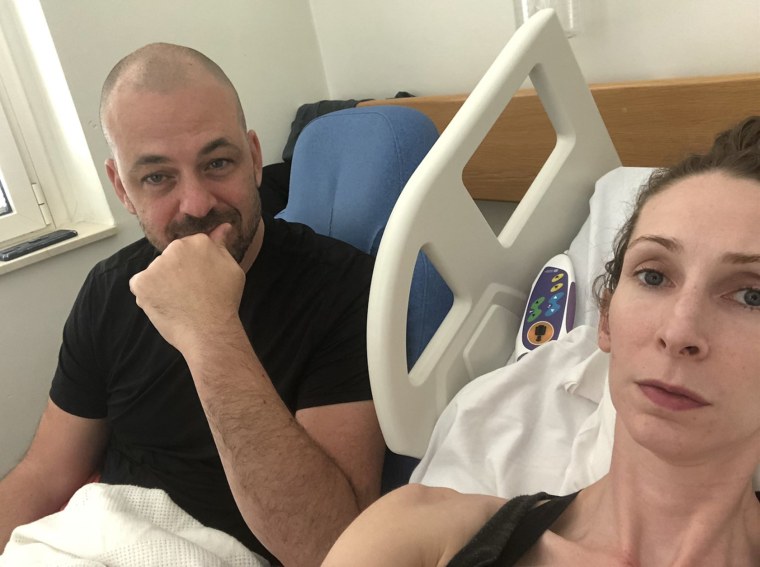An American woman who is suffering a miscarriage on vacation in Malta is being denied an abortion even though continuing to carry the nonviable pregnancy could kill her.
The miscarriage was a devastating blow for Andrea Prudente, 38, and Jay Weeldreyer, 45, who had been thrilled to learn they were expecting a daughter.
"Just elation and super excitement," Weeldreyer told TODAY Parents. "There's a sense of gravity that comes with important decisions, like having kids, sure, but we were both really excited."
She can go from being stable, to being very unstable to being quite dead ... the only way to stop that bleeding will be to have an abortion."
Dr. Isabel Stabile, a MALTA gynecologist who reviewed Prudente’s medical notes
The couple, who lives in Washington state, took a babymoon to Malta for some quality one-on-one time before their daughter arrived.
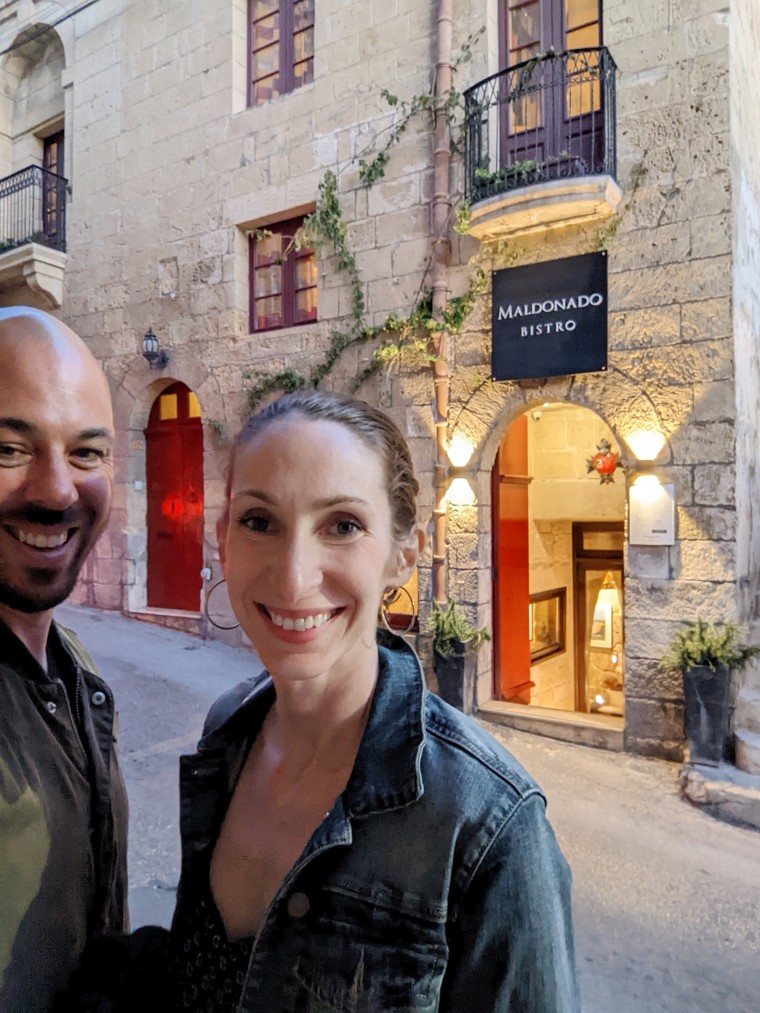
But in the middle of the night on Sunday, Prudente, who was 16 weeks pregnant and had a healthy pregnancy up to that point, woke up in a pool of blood.
"It was an immediate rush to the hospital," Weeldreyer said.
After two days of treatment and observation, Weeldreyer and Prudete were told that the pregnancy was no longer viable.
I was gutted. Heartbroken. I thought, 'What's next? Is Andrea safe?'
Jay Weeldreyer
"A doctor told us that the baby was still alive, but the placenta was detaching partially from the uterus," Weeldreyer explained. "She lost all the amniotic fluid, and there was a complete rupture of the membrane," he added. "We were told the baby wasn't going to survive."
In that moment, Weeldreyer realized that the couple's plans to expand their family had vanished.
"I was gutted. Heartbroken. I thought, 'What's next? Is Andrea safe?'" he explained. She was not. With the membrane ruptured and no amniotic fluid, the baby is slowly dying and there's no way to save the pregnancy. Without a dilation and curettage procedure, or D&C, the technical name for a surgical abortion, Prudente is in danger of dying from an infection or bleeding to death.
"There was an awareness that this wasn't over yet, and we really don't get to grieve until it is," Weeldreyer said.
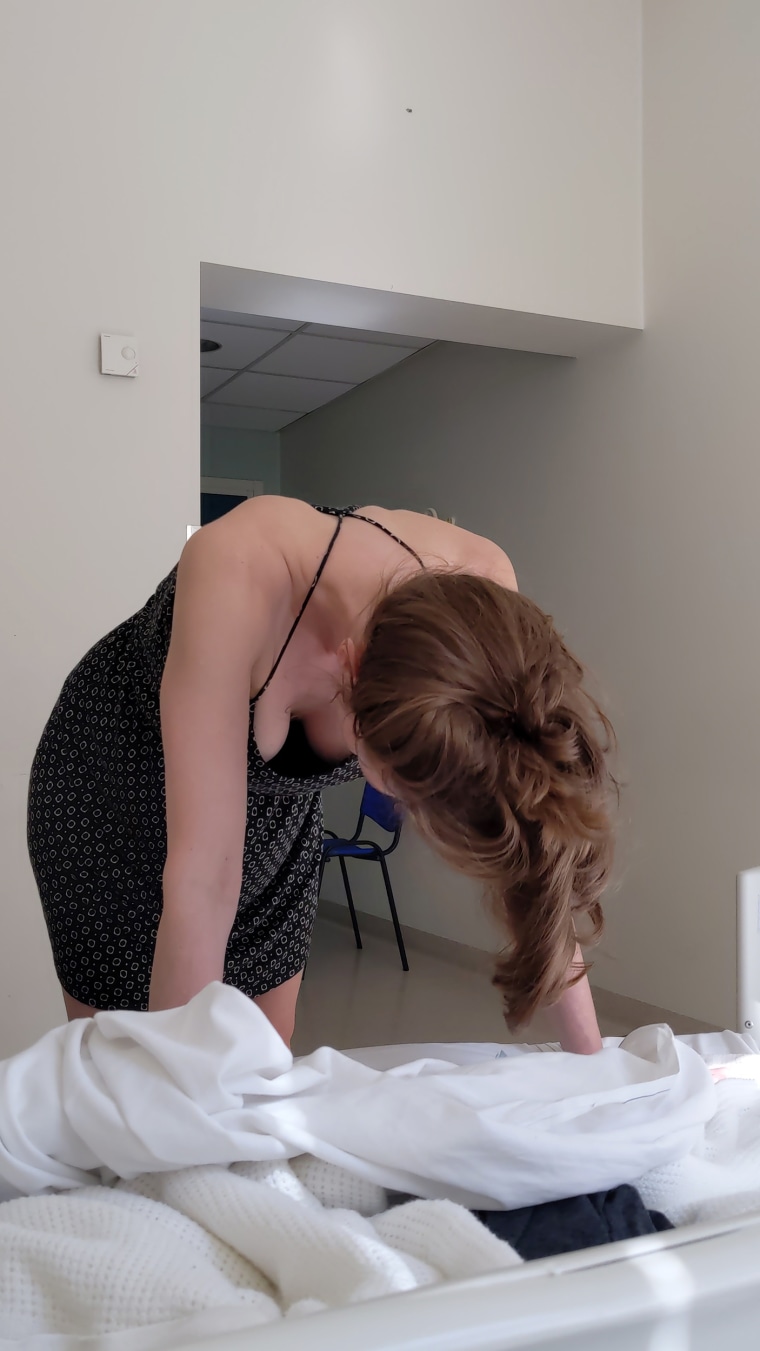
Weeldreyer said the couple didn't know what to expect and were simply told they had to go to another hospital: The doctors treating Prudente would not remove the nonviable pregnancy.
At the time, the couple did not realize that abortion is illegal in Malta.
Malta is one of only a few countries in the European Union to ban abortion, and has one of the strictest anti-abortion laws in the world.
TODAY reached out to Mater Dei Hospital, where Prudente was treated, and the Maltese government for comment, but did not hear back at the time of publication.
"So we checked in to another hospital for observation because the risk of infection was so high. We didn't realize that (observation) was all they would do because there was still a heartbeat," Weeldreyer explained. "It wasn't until a couple days later that we realized the details of the legal restrictions, and that made the behavior of the medical professionals make a lot more sense. It hammered home just how bad our situation was."
'There's a kind of torture that happens'
Dr. Isabel Stabile, a gynecologist and Doctors for Choice member practicing in Malta, reviewed Prudente’s medical notes and confirmed her water did break and that there is next to no amniotic fluid left. There's no way her baby can survive.
"There are two main risks," Stabile told TODAY Parents. "The first is sepsis infection." Stabile says that risk is no longer her main concern, as Prudente has been on a steady regimen of antibiotics.
They have the capacity to provide the help. It's right there ... But not only will they not help, they're doing things to prolong suffering.
Jay Weeldreyer
"The second risk is hemorrhage (bleeding)," she added. "This is the concern — that she can go from being stable, as she is now thankfully, to being very unstable to being quite dead if she's not in a medical facility very quickly. And the only way to stop that bleeding will be to have an abortion."
Stabile says that a "pre-viable, preterm, premature rupture of membranes" occurs in less than 1% of pregnancies, and there is no treatment or cure that can save the fetus, no matter where you are or how good your care is.
In Malta, abortion is banned under any circumstances. Any doctor who performs an abortion while a fetal heartbeat is detected can face up to four years in prison, and women who obtain an abortion can face up to three years in prison.
Prudente and Weeldreyer had two options.
"One is to stay here and wait with the hope that the pregnancy ends and resolves itself, cleanly and safely, with a very high chance that that's not the case," Weeldreyer said. "Or we take an extremely risky flight and go to somewhere where they will provide care."
After weighing the pros and cons, the couple decided they'd fly to Spain for an abortion.
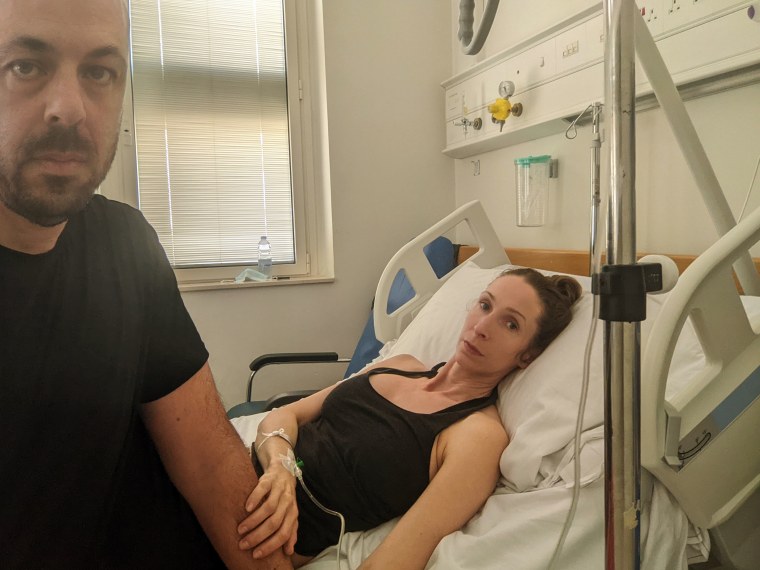
"There's a kind of torture that happens, psychologically, when you've been attaching to a pregnancy, seeing her on the ultrasound and making plans, only to learn you can't have her," Weeldreyer said. "And then you encounter a medical system that puts you in the situation we're in now — probably the worst situation imaginable.
"They have the capacity to provide the help. It's right there and available," he added. "But not only will they not help, but they're doing things to prolong suffering. We wanted this baby girl, and without water she's now compressed."
Stabile says she is worried about the mental and emotional harm Malta's abortion restrictions are causing, not just to Weeldreyer and Prudente but to other Maltese pregnant women and people in similar situations.
There was a moment when Andrea told me she was seriously considering asking me to punch her as hard as I can in the stomach.
Jay Weeldreyer
"I can't even begin to imagine how awful this must feel, from the perspective of the woman herself, of course, and her partner," Stabile said. "... Consider just for a moment, how much worse it is for someone who does not have insurance to lift you to another country. That is the situation for local patients on the island."
Weeldreyer says that being denied care, as well as the heartbreaking daily vital checks on the daughter he knows won't survive, has been excruciating.
"There was a moment when Andrea told me she was seriously considering asking me to punch her as hard as I can in the stomach, to start labor or stop the heart," he explained. "You are looking at your partner and she's asking you to do everything that goes against your nature — hurting her, hurting the baby you want — but at the same time it might be the path to save her ... You're pleading and pleading, and there's no way to get the help you want."
'There's nothing beyond landing at this next destination'
Weeldreyer say they tried to leave the country on a private flight, but doctors would not clear Prudente to fly.
"They require a fit-to-fly note and a discharge note from a doctor," he explained. "The only way we can leave the hospital is against medical advice ... No private carrier will accept our business."
Over the course of two-and-a-half days, Weeldreyer worked with his insurance company to secure an emergency flight to Spain.
Now, Weeldreyer said, he's so worried about Prudente's health.
"We're entering into what is ... maybe even the riskiest point for her safety," he added. He said he's just trying to think positive and focus on the next step.
"There's nothing beyond landing at the next destination," he said. "We were supposed to fly home last Friday. And then there's the wreck of our finances. Insurance is arranging this, but we're responsible for everything above and beyond what they cover."
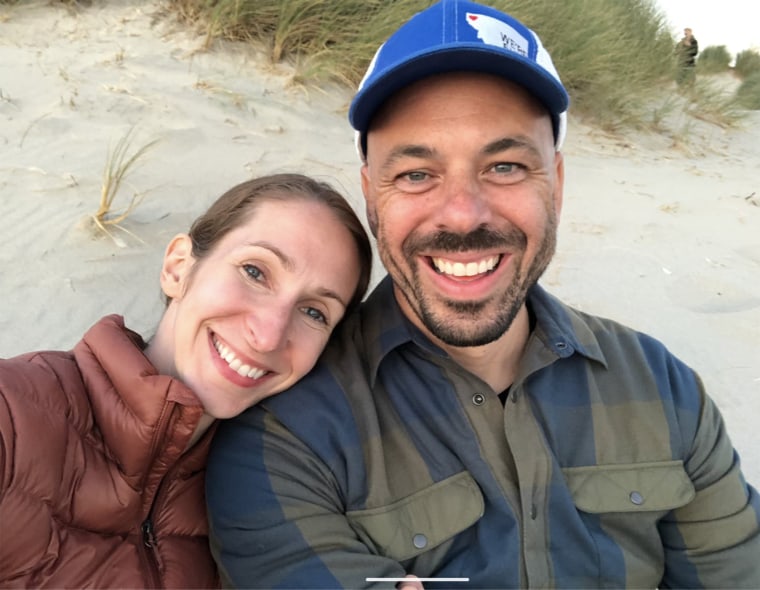
In 2012, Savita Halappanavar, a dentist in Ireland, experienced a similar pregnancy complication. At 17 weeks gestation, her amniotic sac ruptured, but her fetus still had a heartbeat. Abortion was illegal in Ireland, so doctors refused to remove the non-viable pregnancy while a heartbeat was still detectable. Six days later, Halappanavar developed sepsis, went into cardiac arrest, and died. She was 31.
Halappanavar's death was a rallying point for abortion rights activists in Ireland, and abortion is now permitted in the country.
Stabile warns that if the United States Supreme Court rules to overturn Roe v. Wade, which the court is set to rule on this summer, more Americans will experience what Prudente and countless others have endured.
"When it comes to reproductive rights, we (in Malta) are really a third world country," she said. "And when Roe v Wade is reversed in the U.S., you will have exactly the same problem."
Related:
